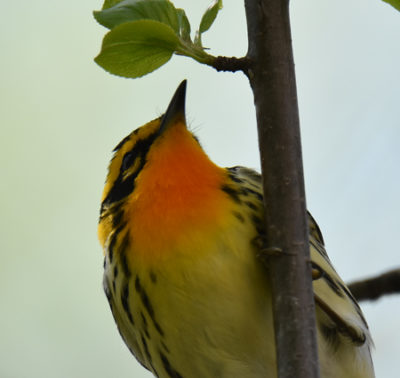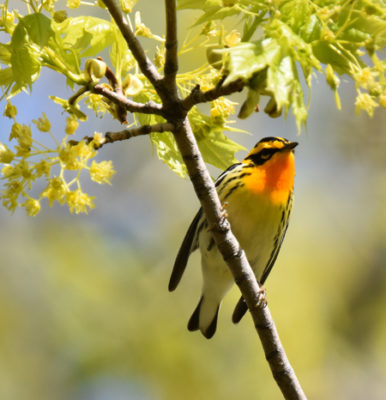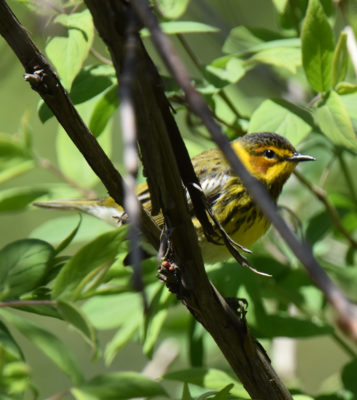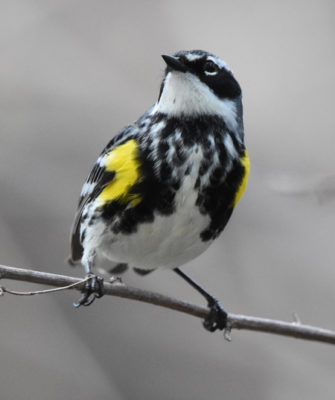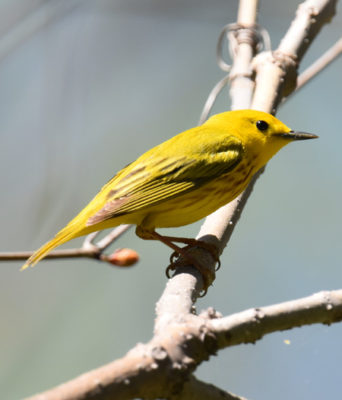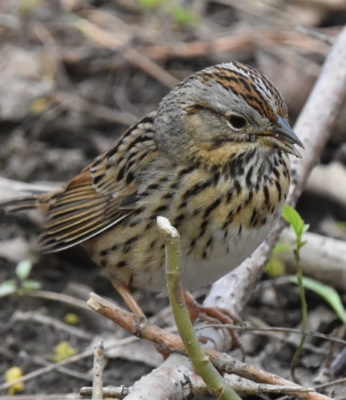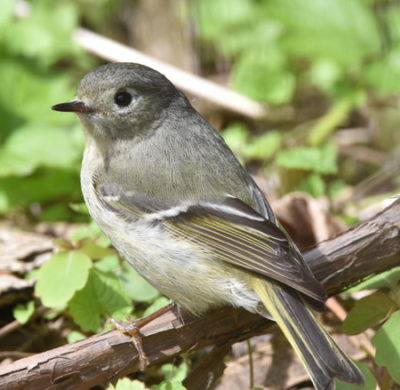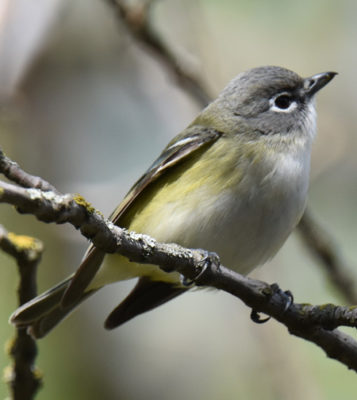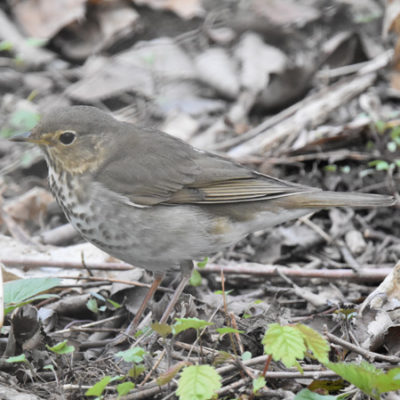Early to mid-May is a great time to look for migrating birds in southern Ontario. Here, near Toronto, we see waves of migrating warblers, flycatchers and other small birds working their way north to their breeding territories. Yesterday, May 14, I was fortunate enough to have the time to stay in a lake-side park watching all the new arrivals catching gnats, eating sumac fruit, and chasing each other around.
What Tiny Bird Has a Bright Orange Throat?
The prize for most cheerful splash of colour probably goes to the male Blackburnian Warbler.
Ontario Migrating Spring Warblers Come In Every Colour and Pattern
It’s fun trying to guess what you may see next on a day when many warblers arrived over night. Here are some of the ones I saw, although I missed finding three other kinds that Birders kept mentioning to me. (Which gives me incentive to try again!)
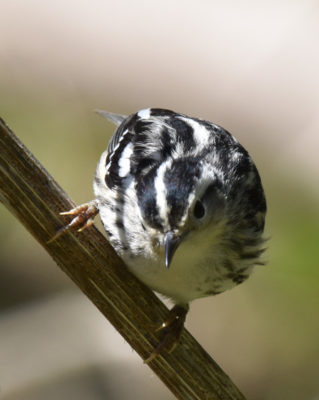
An aptly named Black and White Warbler.
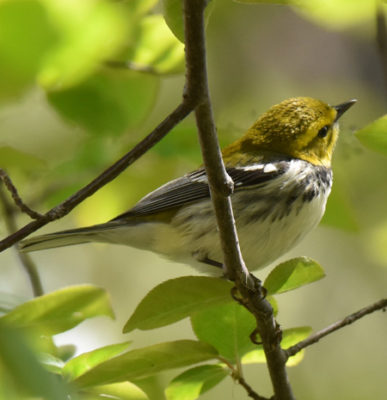
A less-aptly named Black-throated Green warbler.
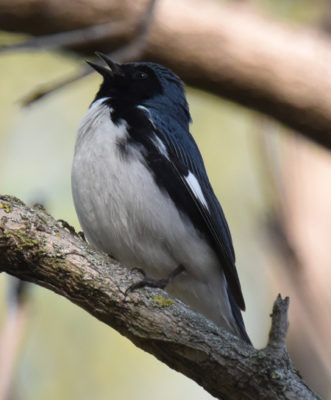
The reasonably named Black-throated Blue Warbler, warbling.
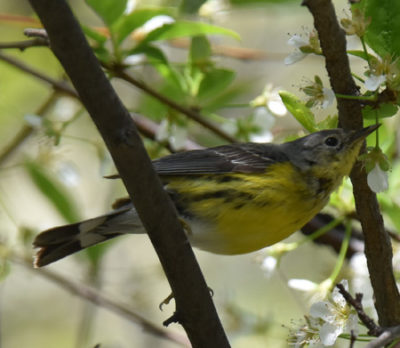
A female or non-mature male Magnolia Warbler.
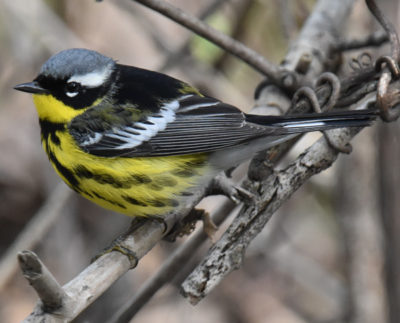
The more showy male Magnolia Warbler.
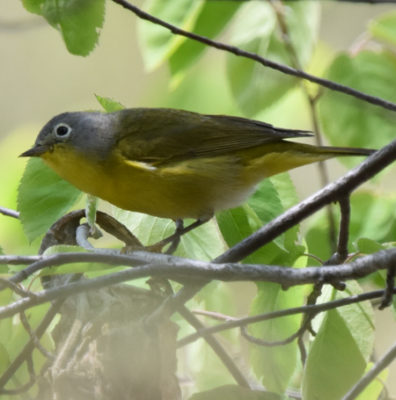
This Nashville Warbler would look brighter if it would just pop up into the sunshine.
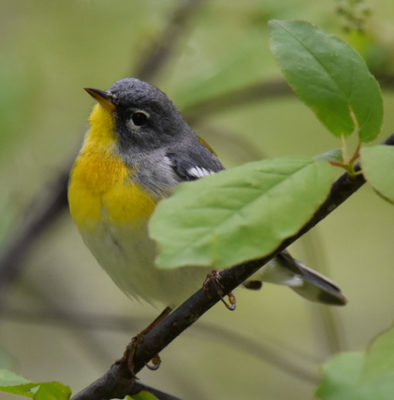
This Northern Parula has not yet added its splash of rusty orange but you can see it starting.
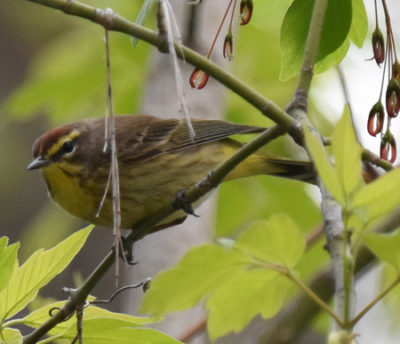
This Palm Warbler was bobbing its tail steadily in the field-guide-approved manner making it easier to identify from a distance.
Yellow-rumped Warblers come in a variety of colour patterns depending on their age and gender but all share the yellow “shoulders” and yellow above the tail splotch.
It was hard to get a photo of a Yellow Warbler as they were flying furiously trying to keep rivals out of their chosen patch of shrubs.
Some Interesting Sparrows Also Migrate in Spring
While most lack the glamourous colouring of the warblers, there are many sparrows migrating through, too.
This Lincoln’s Sparrow is not named after a US President. You can search the internet for the real reason for its name, if you want. It was also a puzzling sparrow because although it has the expected buffy colour down the right side under the black lines, it did not on its left side: so until it turned around I wasn’t quite sure what I was looking at.
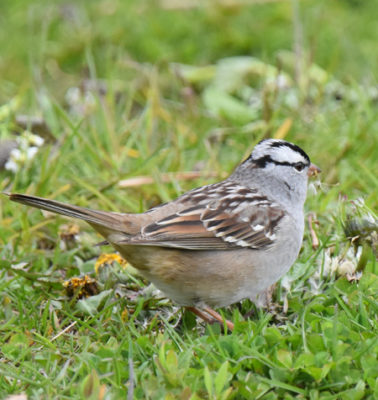
This White-crowned Sparrow was one of a flock on the grass eating early Dandelion seeds.
Not Every Small Migrating Bird Is a Warbler or Sparrow
The most common bird yesterday, by far, was this kind.
Ruby-crowned Kinglets have been migrating through for several weeks but we had another surge of them visiting.
This is a Blue-headed Vireo, and its head does look steel blue in better light. Other vireos on the move include Warbling and Red-eyed Vireos, some of which will stay and nest in GTA parks this summer.
Larger Birds to Watch for on Migration in Toronto
Not every migrating bird is the size of a sparrow or smaller. The big birds come through too, including various hawks and perching birds.
Our Robins are a type of Thrush and many other Thrushes will be migrating through Mississauga, Oakville, Hamilton and Toronto this month.
This buffy-faced spotted thrush is a Swainson’s Thrush.
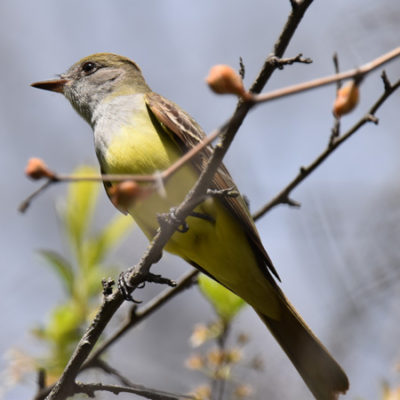
This Great-crested Flycatcher may migrate through or may stay locally to nest. Its yellow colouring is very vivid in the spring.
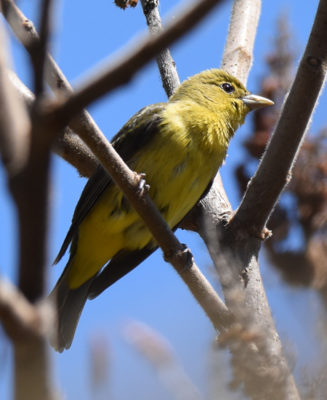
This Scarlet Tanager seems mis-named because the females aren’t red.
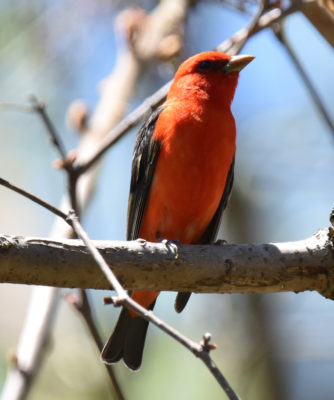
Her partner, though, fits the name Scarlet.
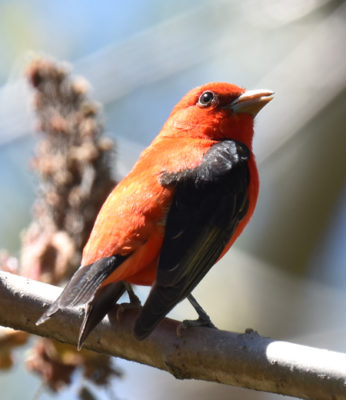
This photo shows one of the dangers of telephoto lense’s: the shape of a subject can be distorted by the lens.
And that’s all of yesterday’s migrants. Or at least all of the ones where I had a reasonable photo to share. So I guess I’d better get out there again today and try to find a Chestnut-sided Warbler and an American Redstart to add to my photo collection!
Related Reading
Join In
Do you look forward to seeing the bright colours of spring migrants? Please share your sightings with a comment!

